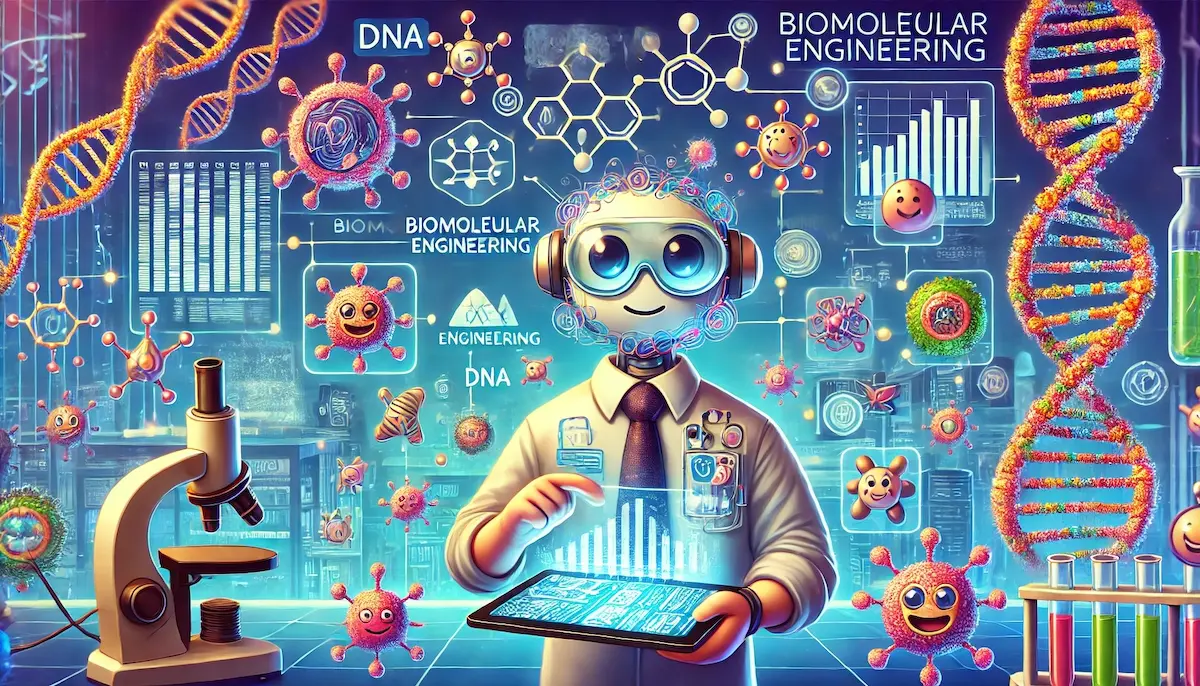Biomolecular engineering is an exciting and rapidly evolving field that sits at the intersection of biology, chemistry, and engineering. It involves the design, manipulation, and application of biological molecules—such as proteins, DNA, and enzymes—to develop new technologies and solutions in various industries, including medicine, biotechnology, and environmental science.
The Foundation of Biomolecular Engineering
At its core, biomolecular engineering is about understanding and harnessing the principles of biology to solve complex problems. The field builds on the basic concepts of molecular biology and biochemistry, focusing on how biological molecules function and interact within living organisms. By leveraging this knowledge, biomolecular engineers can create new molecules with specific properties, develop novel therapeutic approaches, and even design synthetic biological systems.
One of the most critical aspects of biomolecular engineering is the ability to manipulate DNA, the molecule that carries genetic information in all living organisms. Techniques like gene editing and synthetic biology allow engineers to modify the genetic code, enabling the creation of organisms with desired traits or the production of valuable compounds, such as biofuels or pharmaceuticals.
Applications of Biomolecular Engineering
The applications of biomolecular engineering are vast and impactful. In the medical field, for example, biomolecular engineers are at the forefront of developing targeted therapies for diseases like cancer. By engineering antibodies or other proteins to recognize and attack specific cancer cells, these therapies can be more effective and less harmful than traditional treatments.
In biotechnology, biomolecular engineering is used to create enzymes that catalyze industrial processes more efficiently, reducing the need for harsh chemicals and minimizing environmental impact. These engineered enzymes are also crucial in the production of biofuels, helping to convert plant biomass into renewable energy sources.
Environmental science also benefits from biomolecular engineering, where engineered organisms can be used to break down pollutants or to monitor environmental conditions. These applications highlight the potential of biomolecular engineering to address some of the most pressing challenges of our time, from healthcare to sustainability.
The Future of Biomolecular Engineering
As technology advances, the potential of biomolecular engineering continues to grow. The integration of artificial intelligence and machine learning with biomolecular engineering is paving the way for even more precise and efficient design of biological molecules. This synergy could lead to breakthroughs in personalized medicine, where treatments are tailored to the genetic makeup of individual patients, or in the development of sustainable bioproducts that reduce our reliance on fossil fuels.
Biomolecular engineering is a field that promises to revolutionize how we approach problems in science and industry. With its ability to design and manipulate the very building blocks of life, the possibilities are virtually limitless.
Blockfine thanks you for reading and hopes you found this article helpful.
